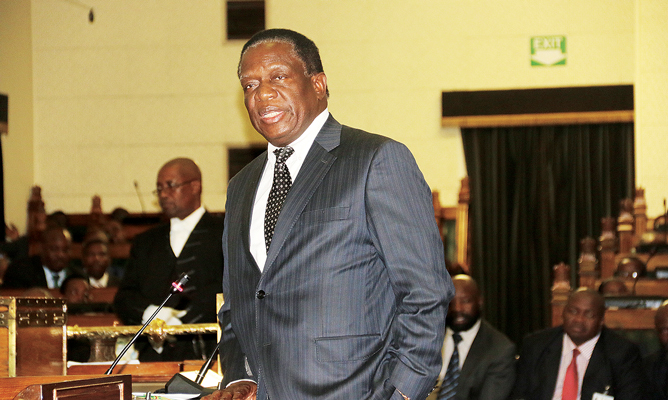
Zimbabwe will stop importing grain and reclaim its bread basket status within the next four seasons because of the initiatives undertaken by government to boost output, vice-president Emmerson Mnangagwa has said.
BY VICTORIA MTOMBA
The country has become a net importer of grain following the 2000 land reform exercise that decimated agriculture.
Banks have been reluctant to offer loans to farmers even after the issuance by government of 99-year leases to beneficiaries of the land redistribution exercise which were meant to act as collateral.
Speaking at the official opening of the Buy Local summit held in Mutare last week, Mnangagwa said history showed that the country had the capacity to produce its food and that importing grain would soon come to an end.
“We believe that with what we are doing, we should be able to say in four seasons, bye -bye to the importation of grain. For A1 farmers, we will continue to provide inputs for them and agriculture extension officers will visit those areas and make sure people grow the correct crops for the area,” Mnangagwa said.
He said the country had the largest water bodies in the region and there was need to harness that advantage and produce food through irrigation.
- Chamisa under fire over US$120K donation
- Mavhunga puts DeMbare into Chibuku quarterfinals
- Pension funds bet on Cabora Bassa oilfields
- Councils defy govt fire tender directive
Keep Reading
Mnangagwa said Zimbabwe was getting agricultural equipment from Brazil to boost output. That is despite concerns the equipment was being distributed along party lines. First lady Grace Mugabe distributed some of the farm implements from Brazil during her political rallies last year.
The VP said the country required people to efficiently utilise the land and water resources to boost output.
“All those people around water bodies are being organised to use water and equipment and inputs but it’s not for free. Those who do not want to use water should stay away from water. Wherever there is irrigation we are resuscitating the irrigation scheme and creating new ones where there is a river or a dam.
“Arda had gone derelict and so far I have covered six provinces reviving Arda and giving them partners. For instance in Matabeleland South, we have two schemes Ingwizi and Maphisa. At Ingwizi last summer they cultivated 600 hectares and this year, now that we got in, they have doubled to 1 200 hectares. We have supported them with irrigation and relevant equipment. In Antelope they had 400 to 500 hectares and this winter they have put 600 hectares but in summer we said they should go up to 1 000 hectares,” he said.
Mnangagwa said government needed 2 000 farmers that could grow 200 hectares either individually or cooperatively and government would provide inputs and chemicals. Out of the produce, five tonnes would be taken (by government) as repayment for the inputs.
Zimbabwe has over the years been facing acute grain shortages attributed to low production on the farms where land resettlement beneficiaries are failing to utilise the land while farmers struggle to get financing from banks due to lack of collateral.












